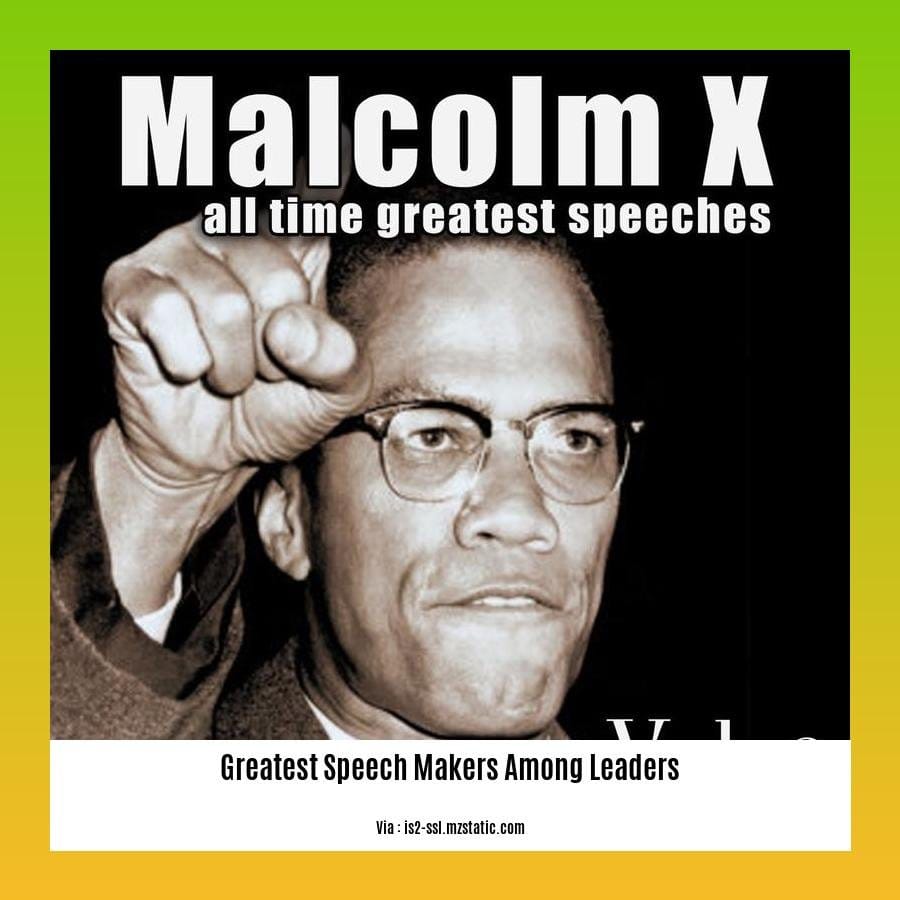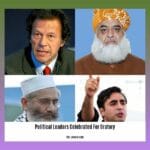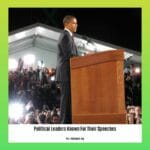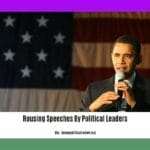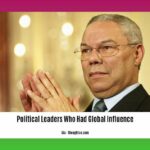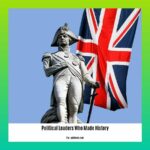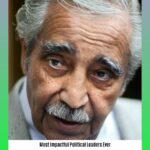In the annals of history, the ability to deliver an impactful speech has set apart great leaders. From Churchill’s defiance to Lincoln’s eloquence, the power of words has played a pivotal role in shaping nations and inspiring generations. In “Greatest Speech Makers Among Leaders: The Art of Delivering Impactful Speeches,” we delve into the qualities that elevate these orators above the rest, examining their techniques, passion, and the lasting impact they have left on the world.
Key Takeaways:
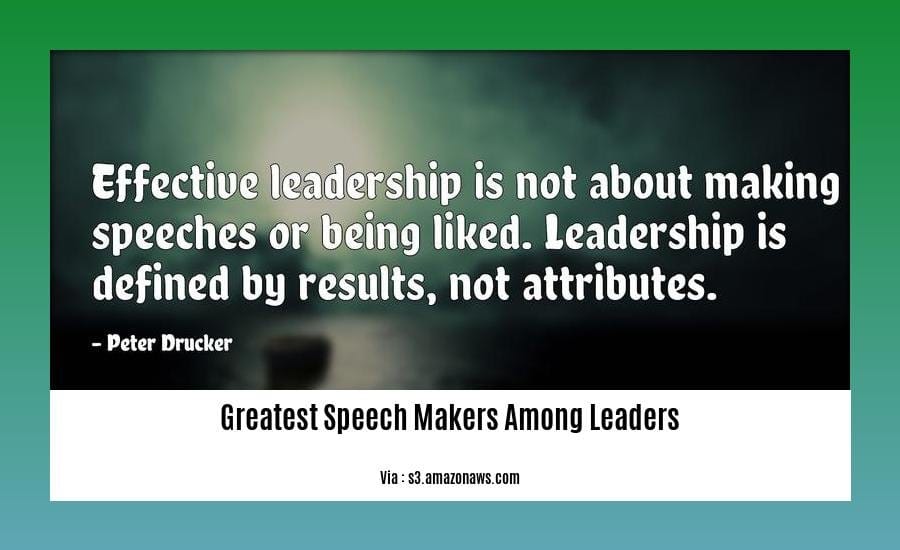
- Embrace a compelling vision for a better future.
- Inspire others through nonviolent resistance and unity.
- Pursue your passions and value every moment.
- Live a meaningful life by cherishing time and relationships.
- Identify the qualities of effective leadership, including empathy and authenticity.
- Celebrate ideals and encourage action through powerful words.
- Harness the strength of imagination and perseverance.
- Define true success through integrity, purpose, and collaboration.
Greatest Speech Makers Among Leaders
Throughout history, exceptional leaders have captivated audiences with their powerful speeches, leaving an indelible mark on the world. These greatest speech makers among leaders harnessed the art of oratory to inspire, motivate, and shape the course of events. Their speeches resonated with authenticity, a deep understanding of their audiences, and a profound command of language.
Let’s delve into the captivating world of these extraordinary orators:
Winston Churchill:
Renowned for his stirring wartime speeches during World War II, Churchill rallied the British people with his eloquent words. His speeches were characterized by a blend of patriotism, wit, and unwavering optimism in the face of adversity.
Abraham Lincoln:
Lincoln’s iconic Gettysburg Address remains a masterpiece of American oratory. Through his eloquent words, he captured the essence of the nation’s founding principles and its struggle to overcome division. His speeches were marked by clarity, emotional depth, and a profound understanding of human nature.
Martin Luther King Jr.:
A master orator who championed racial equality and social justice, King’s speeches were both moving and inspiring. He used his eloquent words to advocate for unity and understanding, leaving a lasting legacy in the fight for civil rights.
Nelson Mandela:
Mandela’s speeches played a pivotal role in the anti-apartheid movement in South Africa. His words, characterized by resilience, forgiveness, and a vision of a just and democratic society, helped bring about a peaceful transition to democracy.
Mahatma Gandhi:
Gandhi’s speeches were instrumental in India’s struggle for independence from British rule. Known for his advocacy of nonviolent resistance, his speeches emphasized empathy, compassion, and the power of peaceful protest.
These exceptional leaders shared traits that made them greatest speech makers among leaders:
- A deep understanding of their audiences
- A mastery of language and rhetoric
- An ability to evoke emotions
- A commitment to using their words for the common good
Their speeches not only shaped history but also serve as enduring examples of the power of oratory in shaping the world.
Learn more about the phenomenal political leaders who have mesmerized audiences with their rousing speeches that have sparked movements and shaped history. throughout history, there have been several political leaders known for their speeches that have left a lasting impact on the world. Their ability to captivate and inspire through oratory has made them icons. Those political leaders celebrated for oratory have used their voices to bring about change and shape the course of history.
Martin Luther King Jr.: Lyrical Beauty and Unity
Martin Luther King Jr. was a captivating orator who used his speeches to promote racial equality and unity. His words resonated with millions, inspiring them to join the civil rights movement.
King’s speeches were characterized by their lyrical beauty and unifying message. He used powerful metaphors, similes, and imagery to paint a vivid picture of the injustices faced by African Americans. His speeches also emphasized the importance of nonviolent resistance and reconciliation.
Key Takeaways:
- Use vivid language: Employ metaphors, similes, and imagery to create an emotional connection with your audience.
- Emphasize unity: Focus on shared values and aspirations to bridge divides and inspire collective action.
- Practice nonviolent communication: Even when addressing contentious issues, maintain a respectful and constructive tone.
Citation:
- Martin Luther King Jr. – Biography, Quotes & Legacy | HISTORY:
Nelson Mandela: Resilience and Forgiveness
Nelson Mandela is widely regarded as one of the most influential and impactful leaders of the 20th century. His unwavering resilience and profound message of forgiveness played a crucial role in bringing about the end of apartheid in South Africa and fostering reconciliation between its people.
Throughout his life, Mandela faced countless challenges and adversities. Imprisoned for 27 years for his involvement in the anti-apartheid movement, he endured harsh conditions and isolation but never abandoned his ideals. His resilience became a symbol of hope and inspiration for his fellow countrymen and people around the world who were struggling against oppression and injustice.
Upon his release from prison, Mandela’s call for forgiveness and unity resonated deeply with a nation divided by decades of racial segregation. He recognized that true reconciliation could only be achieved through acknowledging the pain and suffering of the past and working together to build a better future. By embracing forgiveness, Mandela set an example of compassion and understanding that helped to heal the wounds of the past and pave the way for a democratic South Africa.
Key Takeaways:
- Nelson Mandela’s resilience and forgiveness played a pivotal role in ending apartheid and promoting reconciliation in South Africa.
- His experiences as a political prisoner and his unwavering commitment to justice inspired people around the world.
- Mandela’s legacy continues to serve as a reminder of the importance of perseverance, understanding, and the power of forgiveness in overcoming adversity and building a better society.
Relevant URL Source:
Nelson Mandela: A Legacy of Resilience and Leadership
Mahatma Gandhi: Nonviolence and Empathy
Mahatma Gandhi, the iconic leader of India’s independence movement, is widely regarded as one of the greatest orators of all time. His speeches, imbued with a profound message of nonviolence and empathy, continue to inspire and resonate with audiences worldwide.
Gandhi’s speeches were characterized by their simplicity, clarity, and emotional power. He spoke in a conversational style, using everyday language that connected deeply with his listeners. His words were often laced with humor, anecdotes, and personal experiences, making them both relatable and persuasive.
Beyond his oratorical brilliance, Gandhi’s speeches were rooted in his unwavering belief in the power of nonviolence and empathy. He famously stated, “An eye for an eye makes the whole world blind.” Gandhi’s message of peace and reconciliation extended to his political opponents, advocating for dialogue and understanding even in the face of adversity.
Gandhi’s legacy as a speech maker is profound. His words played a pivotal role in shaping India’s destiny, inspiring millions to join the nonviolent struggle for independence. His message of nonviolence and empathy has transcended geographical and cultural boundaries, becoming a timeless guide for social and political movements around the world.
Key Takeaways:
- Nonviolence and empathy are powerful tools for social and political change.
- Simplicity and clarity are essential elements of effective oratory.
- Personal anecdotes and humor can make speeches more relatable and persuasive.
- A commitment to peace and reconciliation is crucial for true leadership.
- Gandhi’s message of nonviolence and empathy continues to inspire and guide people worldwide.
Most Relevant URL Source:
- Gandhi: Toward a Vision of Nonviolence, Peace, and Justice
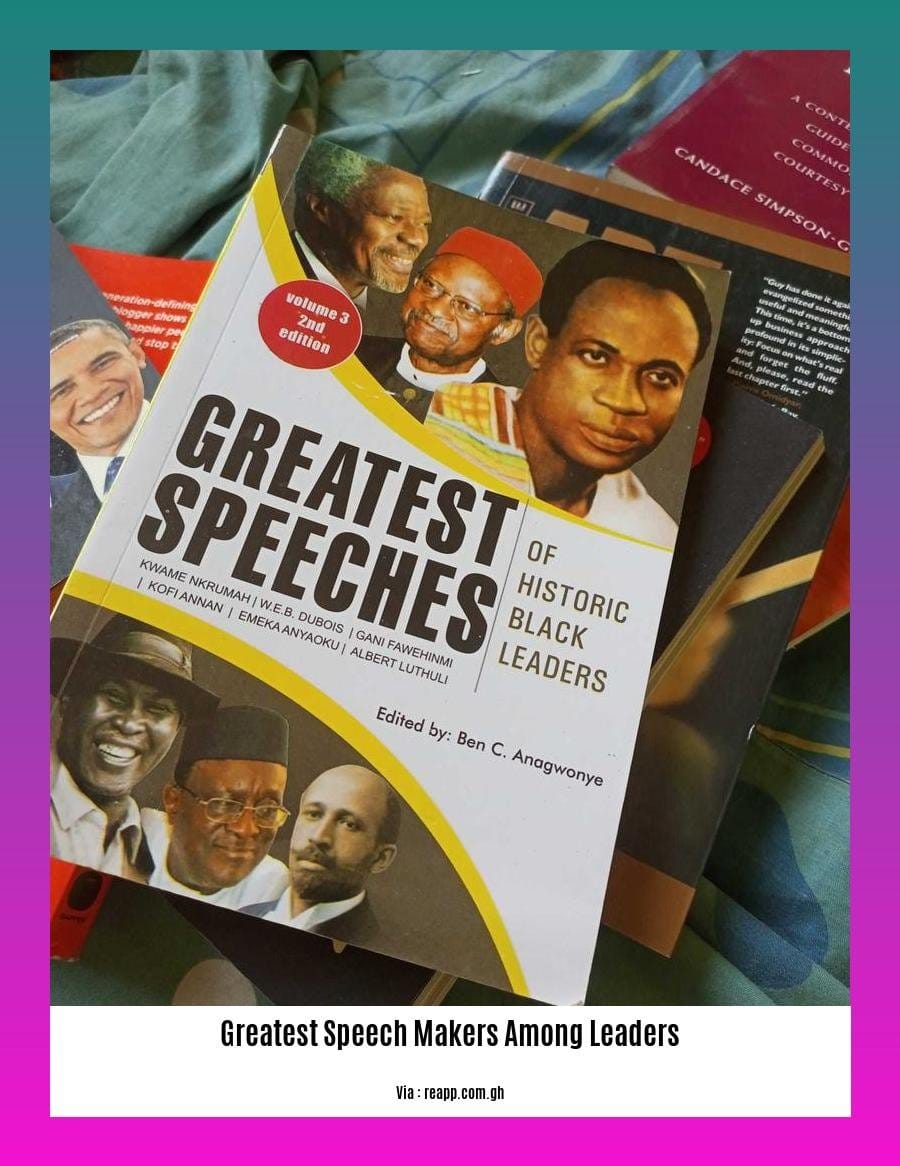
FAQ
Q1: Who are considered some of the greatest speech makers among leaders?
Q2: What are the key qualities that make a speech truly impactful?
Q3: How can leaders effectively use speeches to inspire and motivate their audiences?
Q4: What are some examples of iconic speeches that have shaped history and left a lasting legacy?
Q5: What techniques can leaders use to deliver speeches that resonate with their listeners and achieve their desired outcomes?
- Guatemala vs. Costa Rica: Plan Your Trip Smartly - April 16, 2025
- Master Types of Pumps: Ultimate Guide to Selection - April 16, 2025
- Unlock Types of Makeup Secrets: Master Any Look Now - April 16, 2025
